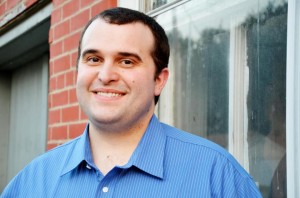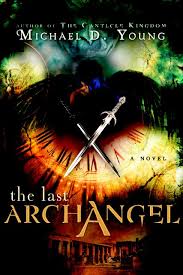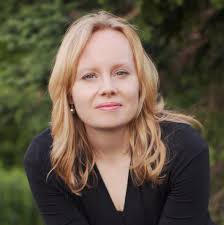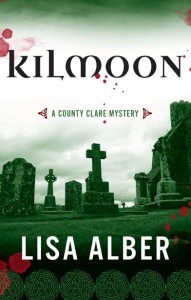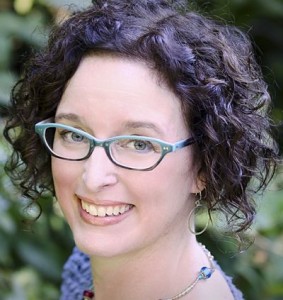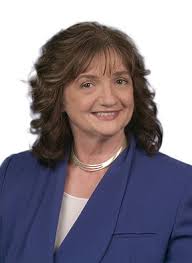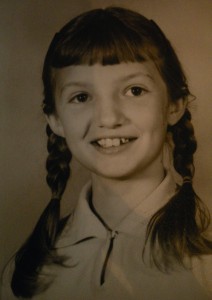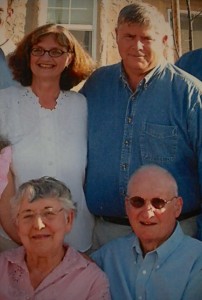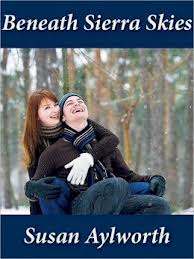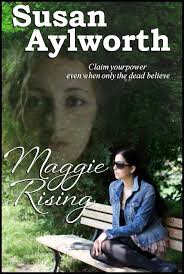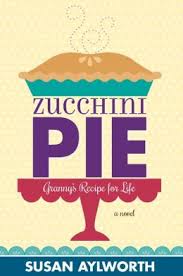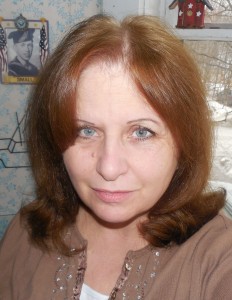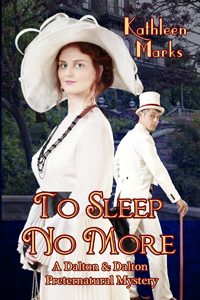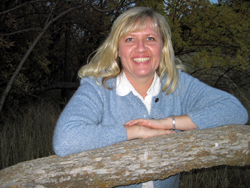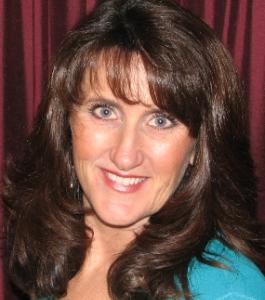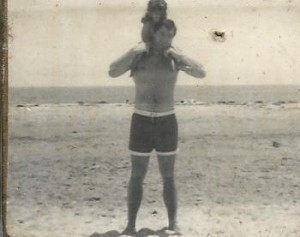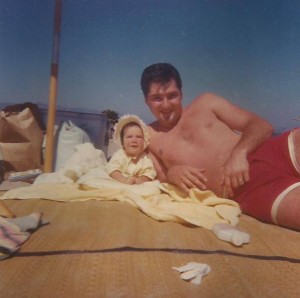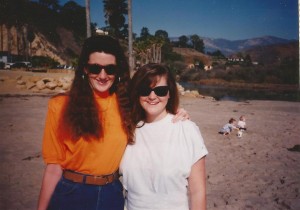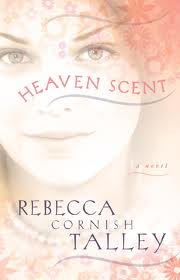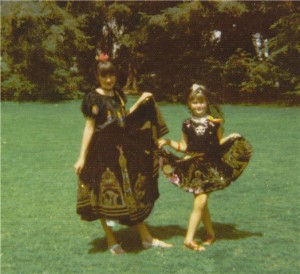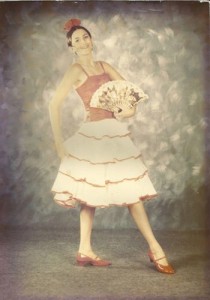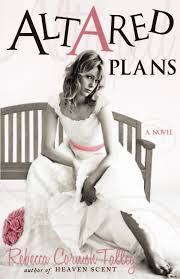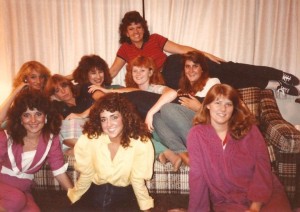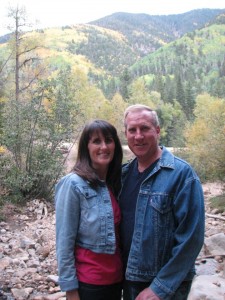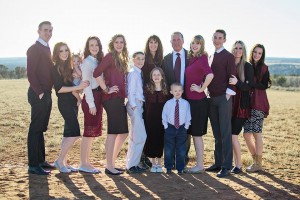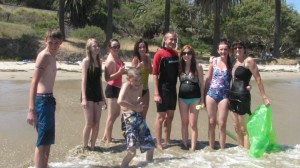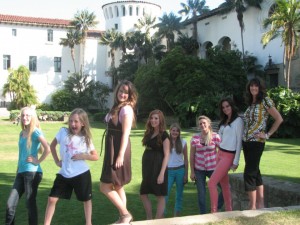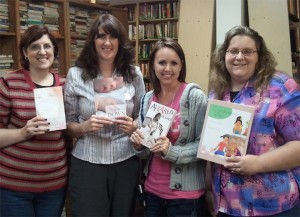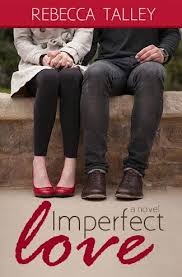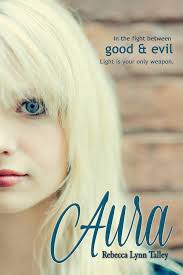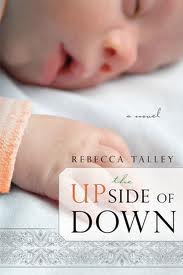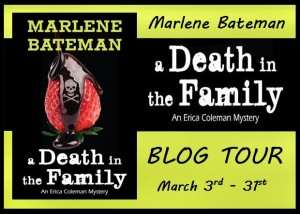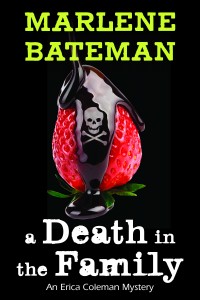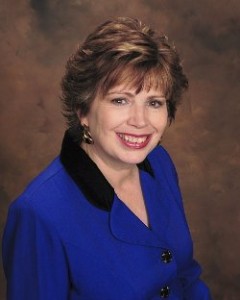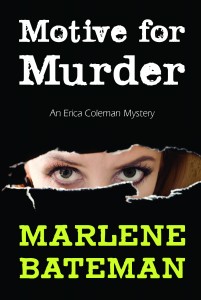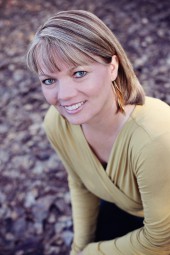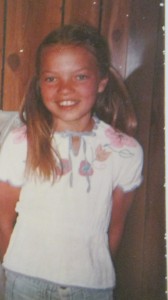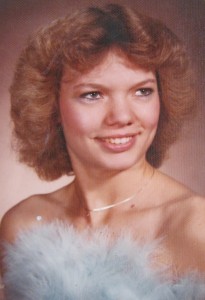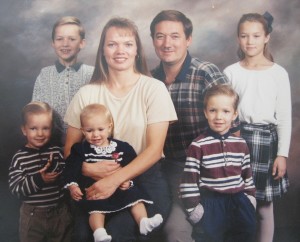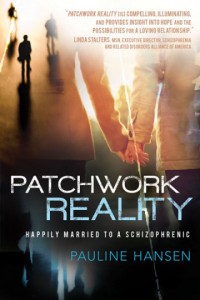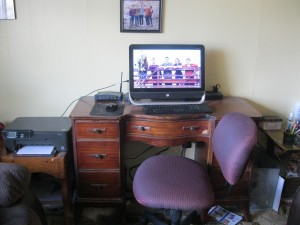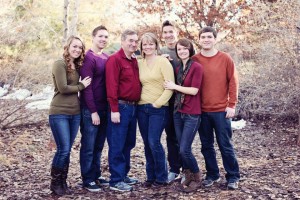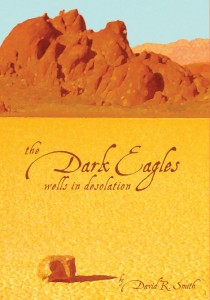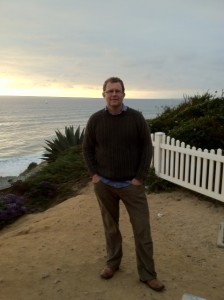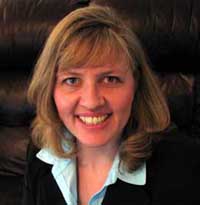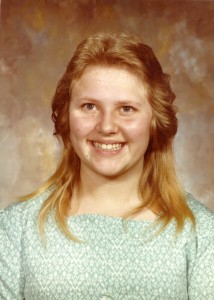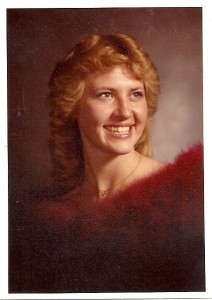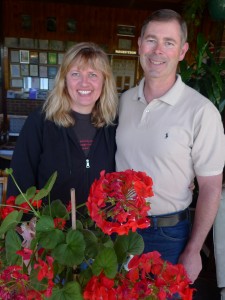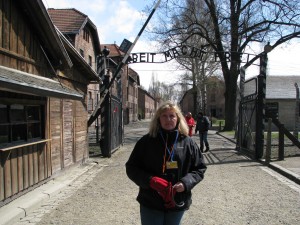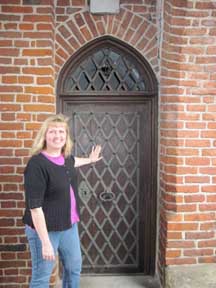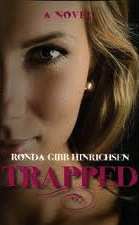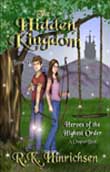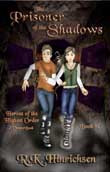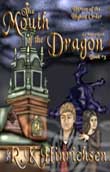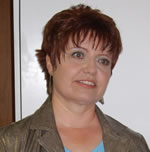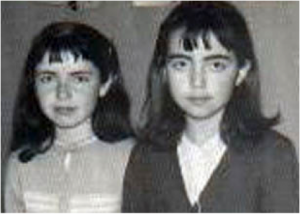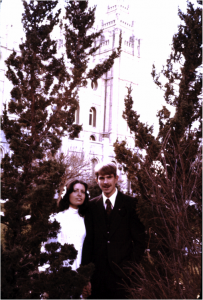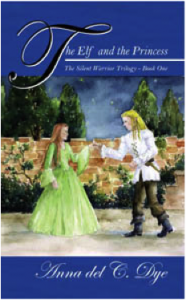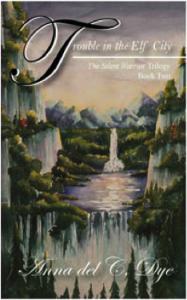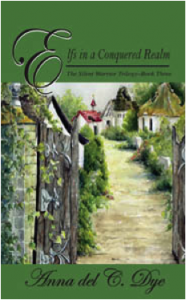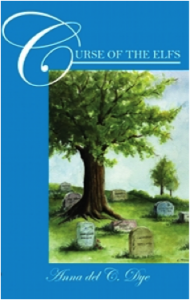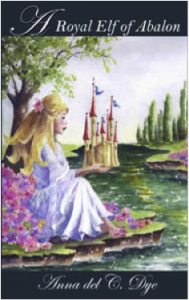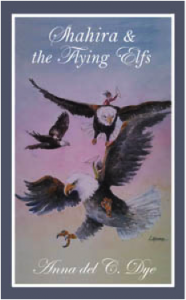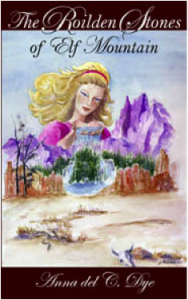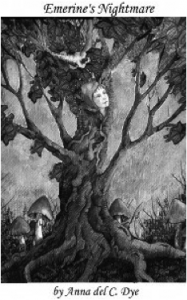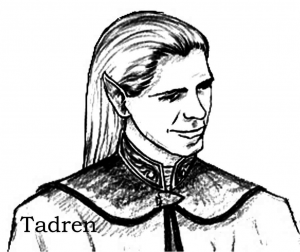When not teaching high school students German online, or practicing and performing with the Mormon Tabernacle Choir, Michael Young writes stories. He has published at least four novels and three Christmas anthologies. In the middle of preparations for choir performances at the recently concluded General Conference of The Church of Jesus Christ of Latter-day Saints, I was able to delve a bit deeper into his background:
ME: In your bio on your blog, it says you grew up traveling the world with your military father. Would you care to elaborate, including some details as to place and which branch of the military? Also, how did your mother fit into this picture? (And I’d love a picture or two of you as a child.)
MICHAEL: My father was a pilot in the US Air Force. For most of his career, he flew the huge cargo plane known as the C-5. It’s big enough to carry tanks, buses, even satellites. It’s one where the nose comes down into a ramp so that you can drive vehicles directly into it.
(Oh, yes. They often show those in action movies.)
My father was gone all the time when I was growing up, traveling all of the continents, even Antarctica on one occasion. My saintly mother stayed home with the children, of which eventually there were eight. She had a huge task just keeping everyone healthy and happy, especially when my dad’s planes broke down overseas, which they often did.
We moved all over the United States, but then also lived in Japan for a time. While we were there, we visited many of the neighboring countries and learned to love a whole new kind of culture.
Later in my life, I then lived in Germany and came to love Europe as well.
(And it must be wonderful to visit there on tours with the choir!)
ME: Which country was the most memorable and why? Do any of these countries figure into your fiction and, if so, how?
MICHAEL: Germany has had the most lasting impression on my mind. I have always been a student of history and it opened my eyes to see so much history up close in Germany. I grew up thinking or dreaming up stories about castles and then I got to actually explore them.
 (Such as the well-known Neuschwanstein Castle in southwest Bavaria)
(Such as the well-known Neuschwanstein Castle in southwest Bavaria)
Germany and Germans have featured in my stories, especially my Canticle Kingdom series, in which the music box on which the story is based was made in Germany by two German craftsmen.
(I thought so. :D)
ME: Where did you go to high school and what kinds of extracurricular activities were you involved in? If theater was one, how has that affected your writing? (I’d love to post a picture of you in a play or show.)
MICHAEL: Performing arts factored heavily into my high school career. Not only did I do the auditioned choirs (Madrigals, show choir, jazz choir), but I also did a lot of drama and musical theater. (Why am I not surprised?)
I did something like eight shows in high school, and often had pretty good roles. On top of that, I played in a handbell choir for my last two years of high school, and had a blast ringing the huge bass bells.
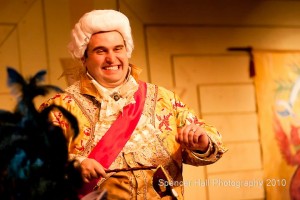 (Michael in a more recent dramatic role…Any guesses as to his character?)
(Michael in a more recent dramatic role…Any guesses as to his character?)
Being in the theater has had a great impact on my writing, as it helps me think of my books as having scenery, characters, and scenes. It helps me look at writing in a different way that I might not had I not worked in the theater.
ME: When did you first realize you might want to be a writer, and what made you think that?
MICHAEL: I first realized this in high school, when I had a great writing class by a teacher who was also named Mr. Young. I decided that I wanted to go ahead and try to write a novel just to see if I could make it happen. It took about a year, but I managed it, and it turned out better than I had expected.
ME: What was the premise of that novel, and what became of it?
MICHAEL: That first novel is called Face Value and it is about a man who feels responsible for his brother’s death and gets the chance to redo the past. He manages to save his brother, but when he comes back to the present, he finds that his brother instead was the one who married Christine, who had been his wife, but also that his mother, who had died of cancer, had managed to survive.
I’ve been releasing this one a chapter at a time through JukePop.com, and hope to release it as a few ebooks. It was a very long book, so I would definitely need to break it up.
ME: Tell us a bit about your first published novel, THE CANTICLE KINGDOM, and how it got onto bookstore shelves. How does it relate to THE CANTICLE PRELUDE?
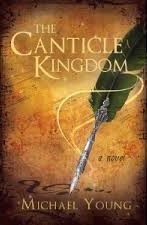 MICHAEL: I wrote THE CANTICLE KINGDOM in the year after I returned home from living in Germany. Once I had finished the manuscript, I took it to a publisher’s fair at BYU and pitched it to Cedar Fort. It didn’t take them long to get back to me, and the rest is history.
MICHAEL: I wrote THE CANTICLE KINGDOM in the year after I returned home from living in Germany. Once I had finished the manuscript, I took it to a publisher’s fair at BYU and pitched it to Cedar Fort. It didn’t take them long to get back to me, and the rest is history.
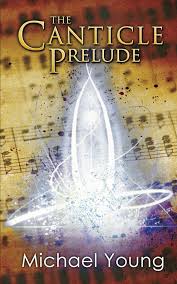 I wrote THE CANTICLE PRELUDE later as a set of prequel stories to THE CANTICLE KINGDOM, because many people told me they wanted to hear more of the backstory. The next book in the series, THE FROZEN GLOBE comes out this month.
I wrote THE CANTICLE PRELUDE later as a set of prequel stories to THE CANTICLE KINGDOM, because many people told me they wanted to hear more of the backstory. The next book in the series, THE FROZEN GLOBE comes out this month.
(If mystery or suspense are involved, you’ll have to let me feature it here on my blog.)
ME: What gave you the idea for THE LAST ARCHANGEL, and can we expect a sequel?
MICHAEL: I’ve always loved lore about angels, and my time in Europe only made me more curious about it. I wanted to do something that differed from the other angel stories I had heard about, so I set out to create my own spin on the angel story, making the main character a destroying angel, with the chance to spare or to destroy. I have written it into a trilogy and the other two books will be coming out this year and next year.
(Terrific!)
ME: Okay, why fantasy and science fiction, as opposed to other genres?
MICHAEL: These genres let my imagination run rampant. I have complete control over every aspect, which is something I find exciting. (Yes, writers tend to be control freaks.) World building, magic/technology, and fantastic settings are all things that motivate me to write.
ME: Please describe your typical writer’s day and tell us what you’re working on now.
MICHAEL: I usually plop down in my favorite chair (see last photo in the interview) at the end of the day once my two kids have gone down and write until I drop.
Right now, I’m working on a few non-fiction projects, a YA Supernatural novel and revising an adult fantasy about people who have both natural and magical hunger. That in addition to a sacred oratorio, three different musicals, short stories, articles…as you can see, writing is a major part of my life.
(Apparently!)
ME: Besides your writing, what do you do to fill your time and support your family? Also, please describe your writing space. (And I must have a picture of said space.)
MICHAEL: My favorite writing space has to be my recliner in my living room. I write best when I’m comfortable, and in a familiar place where the things about me don’t distract.
In addition to writing, I still do theater work from time to time (that explains the photo of Michael in costume), and most of the rest of my time goes to work as an instructional designer of German courses, and singing with the Mormon Tabernacle Choir. I’m pretty busy, but my life is full of great things.
All of Michael’s books are available on Amazon, and you can find out more about the author from his Canticle Blog.
Check back next week when I interview inspirational writer, Teresa Hirst.
Originally posted 2014-04-09 06:00:48.

